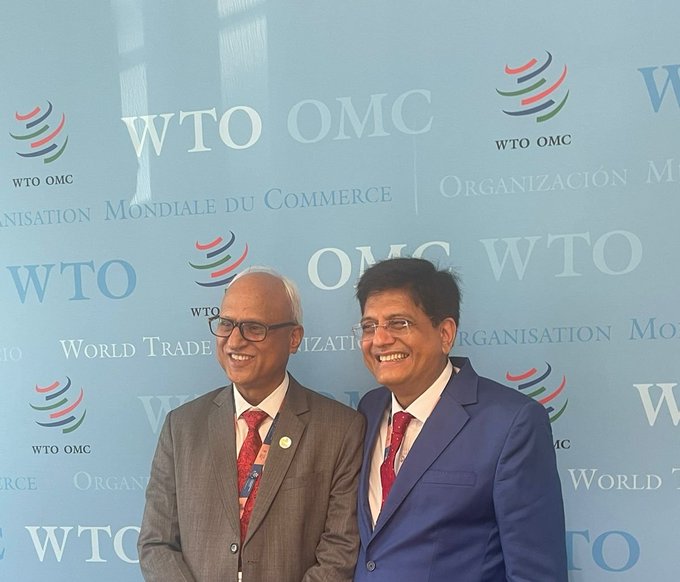Last Updated on June 14, 2022 11:06 am by INDIAN AWAAZ

AMN / Geneva
India’s Minister for Commerce and industry Piyush Goyal has pressed India’s case for countries to be allowed to restrict foodgrain exports to the World Food Programme (WFP) from their public stockpiles, saying the UN agency had failed to respond adequately to help people in hunger.
On a second day at the World Trade Organization’s (WTO’s) ministerial meeting here , Goyal also delivered India’s demand for patents waivers as part of the international response to the covid-19 pandemic. India wants countries to be allowed to restrict WFP exports and to use these foodgrains for humanitarian aid, including government-to-government assistance. Goyal also raised the concerns that a ‘permanent solution’ on public stockholding, a long-standing Indian demand, will not be finalised in the ongoing meeting.
India has made a strong pitch for protecting the interests of the developing and under-developed countries at the WTO. Union Minister of Commerce and Industry Piyush Goyal representing India at the 12th Ministerial Conference of the WTO in Geneva, raised concerns about the skewed WTO reforms proposal, imperative need to retain the Special and Differential Treatment provisions for the developing world, global inequities in Covid vaccination and Public Stockholding of foodgrains.
Speaking on the Challenges confronting the Ministerial Session Mr Goyal said the current proposals for WTO Reform could fundamentally change its institutional architecture, skewing the system against the interests of developing countries. He said, we need to move ahead preserving the core principles of consensus and ensuring Special and Differential Treatment, with people and development being at the core of WTO’s future agenda.
Mr Goyal said the COVID Pandemic has exposed the inability of the world to promptly respond to any crisis, whether on food security or health, economic well being or open supply chains.
He said, the current global food crisis is a reminder to us that we act now. Mr Goyal asked can we risk the lives of millions of people dependent on food stocks maintained for the poor and vulnerable.
